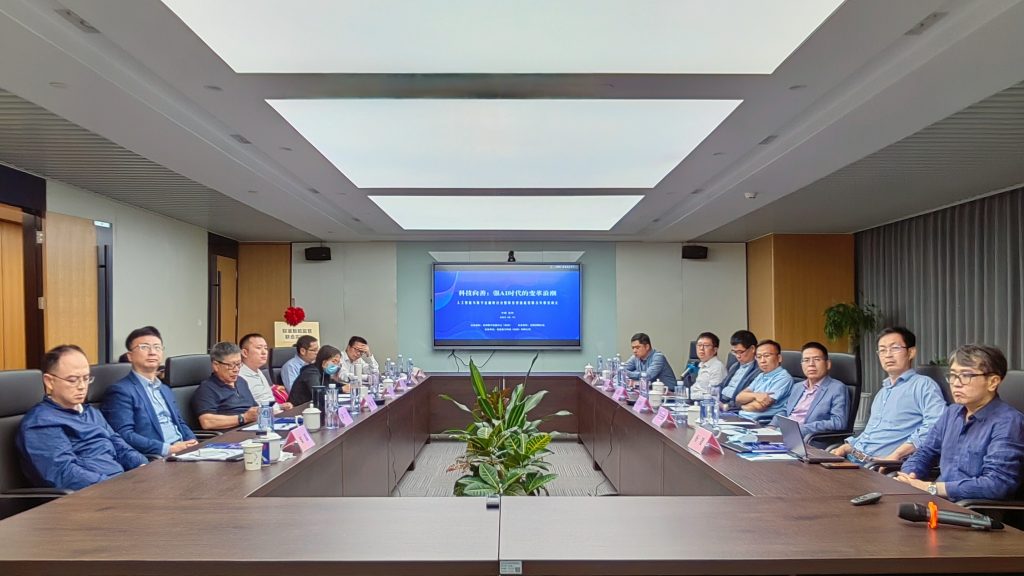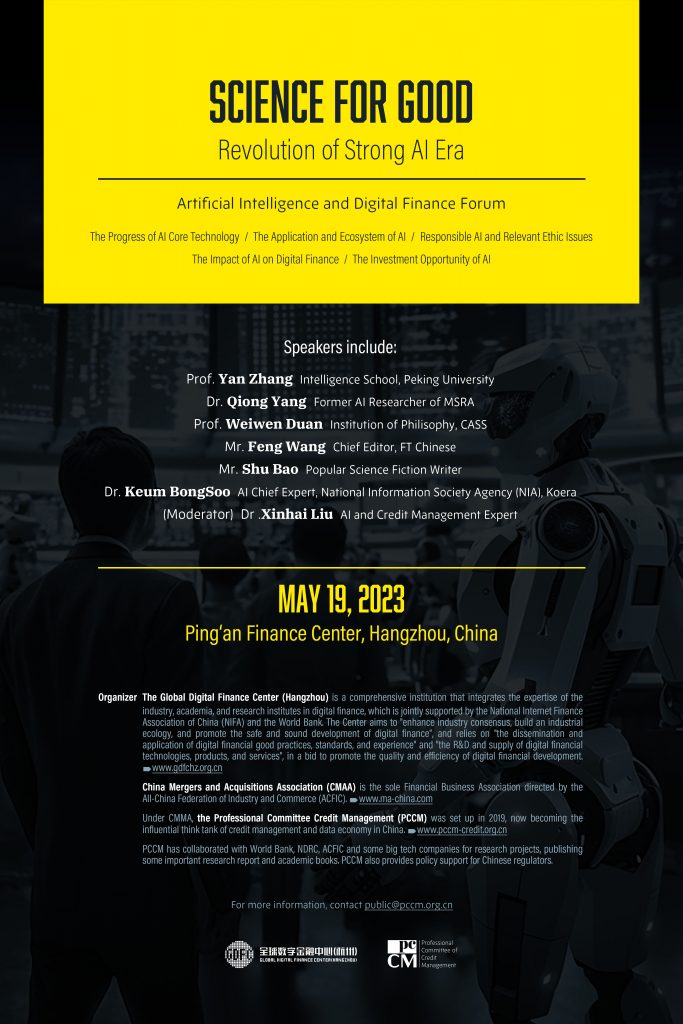PCCM 2020-11-16
15 years after entering China, the international credit reporting giant Experian decided to withdraw from the Chinese mainland market. “There is no sign, and we are also very confused.” Experian’s employees in China told the Economic Observer(http://www.eeo.com.cn) that he suddenly received the news on the morning of November 10.
Since then, Experian’s business partners who learned of the news told journalist, “It was too sudden and said that they would abandon the Chinese market. However, the business cooperation between the two parties is still going on normally.”
On November 13, the relevant officer in charge of Experian Asia Pacific sent an English statement to the Economic Observer, saying, “After an extensive strategic assessment of our business, we will the business credit reporting service of Experian China and retain the decision-making analysis business only in Hong Kong and Taiwan, thereby streamlining the business in Great China.”
The statement also stated, “We are in dialogue with potential buyers of Experian China’s business credit reporting services.”
The journalist learned that at present, Experian mainly has two businesses in China: corporate credit investigation and decision analysis. Among them, the business line of decision analysis will be liquidated and exit; the business line of business credit reporting is looking for potential buyers.
Dr. Xinhai Liu executive deputy director of the Professional Committee of Credit Management(PCCM) from the China Mergers and Acquisitions Association(CMAA), analyzed to the journalist from the Economic Observer that Experian is a company listed in the UK. Any decision of the company is based on the pursuit of commercial profits and responsibility to shareholders, prompting Experian to make this decision. The reason may be related to Experian’s business operations in the Mainland China.
Withdraw from the market of mainland China
Looking back at Experian’s development history in China, as early as 2005, Experian, a British multinational credit reporting group, began to conduct business in China; in 2014, it wholly acquired Chinese business credit reporting service provider Xinhuaxin; it was opened on September 24 of the same year. The Chinese company name is “Experian(益博睿)”; in 2018, it officially obtained the business credit record of the Chinese central bank(a kind of regulation).
In May 2018, the Business Management Department of the Central Bank accepted the filing application of Experian Credit Report (Beijing) Co., Ltd. (hereinafter referred to as “Experian Credit Report”), an enterprise credit reporting subsidiary established by Experian in China.
According to Dr. Xinhai Liu, Experian is both the world’s largest consumer credit reporting agency and the oldest consumer credit reporting agency. Since its business scope covers the business credit reporting part, it can also be considered the world’s largest credit reporting agency. .
It has been more than two years for Experian to obtain the business credit reporting record of the People’s Bank of China(PBoC). “Before obtaining the record, we mostly do business with Experian’s original international customers, but after obtaining the record, we can expand the customer base in the country. More domestic medium and large companies have business dealings with Experian. This is a very obvious change.” When talking about the impact of obtaining credit reporting on the business, Huang Jian, CEO of Great China Experian, said in an interview with the Economic Observer reporter in June this year.
According to official sources, at present, Experian’s business credit reporting service customers have covered many industries such as finance, e-commerce, retail, manufacturing, media, telecommunications, and chemicals, including small and micro enterprises, large and medium-sized enterprises, foreign trade enterprises and other types of enterprises.
Experian has also taken many business actions in mainland China in the past few years, hoping to work hard to achieve business growth. During the recent CIIE, Experian made an appearance at the CIIE and said it would introduce its global leading GDN (GlobalDataNetwork) solution to the Chinese market. In the 2020 annual report, Experian stated that there are currently approximately 1.7 billion adults without bank accounts, and more than 1 billion of them have no access to formal financial services in the Asia-Pacific region.
Dr. Xinhai Liu analyzed that Experian is a listed company, and any shareholder’s decision is to pursue commercial profits. One of the reasons that prompted the group to make this decision may be due to its business operations. In the short term, it may be that the epidemic has a relatively large impact on the business; in the long term, it may be related to Experian’s entry into mainland China for more than ten years and not launching the most commercially valuable consumer credit reporting business.
The journalist learned that the revenue in Greater China was not as expected might be the main reason that Experian made the above decision. Experian (EXPN.L)’s 2020 annual report disclosed on the London Stock Exchange showed that revenue by region and business activities was US$5.179 billion, and operating profit recorded US$1.185 billion. Among them, North America revenue was 3.247 billion U.S. dollars, Latin America revenue was 732 million U.S. dollars, Britain and Ireland revenue was 769 million U.S. dollars, and EMEA (Europe, Middle East, Africa)/Asia Pacific region revenues recorded 431 million U.S. dollars, accounting for 8.3%. In the previous fiscal years of 2018 and 2019, the EMEA/Asia Pacific region accounted for 8.43% and 8.67% of revenue, respectively, which was much lower than the other three regions (North America, Latin America, the United Kingdom, and Ireland).
In Dr. Xinhai Liu ‘s pointview, Experian’s business in the United States has been very successful, but it is lacking in domestic localization in China, especially in the development of China’s digital economy, it may be related to China’s economic situation, rule of law, and financial regulatory environment.
Clearing business, looking for potential buyers
Experian mainly conducts four major businesses in China: (i) business credit reporting, (ii) decision analysis, (iii) anti-fraud and identity authentication, (iv)marketing and data quality. Mr. Huang Jian once told reporters that Experian pays more attention to the two businesses of business creditreporting and decision analysis in China.
In terms of credit reporting data services, the company currently operates 23 consumer credit bureaus and 11 business credit reporting agencies around the world. In the field of decision analysis, Experian provides value-added services based on credit reporting data for customers, and also provides its own expert Consulting, analysis tools, software and solutions to complex problems and business decisions.
The reporter learned that Experian Credit Reporting (Beijing) Co., Ltd., which has a central bank’s credit reporting record, is mainly responsible for business credit reporting, and is looking for potential buyers in this business. In addition, Experian Information Technology (Beijing) Co., Ltd. is responsible for the decision analysis business, and the business of this line will be liquidated. Currently Experian is communicating with employees and customers.
Experian mainly conducts business credit reporting business in China, but does not carry out consumer credit reporting business. According to analysis by industry experts, the inability to develop consumer credit reporting is one of the reasons why Experian’s business in Great China has fallen short of expectations.
Regarding how Experian views the domestic consumer credit reporing market, Mr. Huang Jian once told reporters that in this regard, from the perspective of the global market, each country has a different model. Some are completely government-oriented consumer credit reporting markets, and some are relying entirely on market-driven, many countries have adopted the “government + market” two-wheel driven model. With the launch of Baihang Credit (https://www.baihangcredit.com), China is gradually leaning towards the “government + market” driven model. “This is indeed a market that requires strong government supervision. From the perspective of consumer credit reporting, we have no plans to develop consumer credit reporting businesses in China. However, if the consumer credit reporting market needs our services, we will also actively cooperate with governments and partners locally. After all, Experian’s consumer credit reporting business ranks first in the global market. If necessary, we are willing to bring valuable experience to the Chinese market.”Mr. Huang Jian once said.
In Dr. Xinhai Liu’s perspective, the entry of market-oriented consumer credit reporting agencies into the market may be beneficial to the entire credit reporting market, but it also faces a global challenge, that is, the unprecedented strict regulation of personal data. “Consumer credit reporting services in both Europe and the United States have already developed, and it may be able to cover the cost by responding to the strict regulations. However, when the domestic consumer credit reporting industry is not yet mature, market-oriented companies still need a learning process. The contradiction between regulatory data protection and data application requires a process of exploration and resolution.”
Dr. Xinhai Liu said that Experian’s withdrawal from the mainland China has little impact on the market at the micro level. However, Experian is an excellent brand worldwide. In the process of financial opening, we need world-class financial service companies to add vitality to the market. “Leaving the world’s largest consumer market, this decision is still worth pondering.” Dr. Xinhai Liu said.
As a result, three giants of consumer reporting business worldwide (Experian, Equifax and TransUnion) will not carry out any credit information business in Mainland China after April,2021, when Experian plans to leave Mainland China completely.
As a professional research institute, the Professional Committee of Credit Management(PCCM) from the China Mergers and Acquisitions Association(CMAA) will follow closely with Experian China. PCCM will provide any help for its later mergers and acquisition as necessary.
Chinese Reference:
http://m.eeo.com.cn/2020/1114/433665.shtml
http://finance.caixin.com/2020-11-11/101626402.html
















